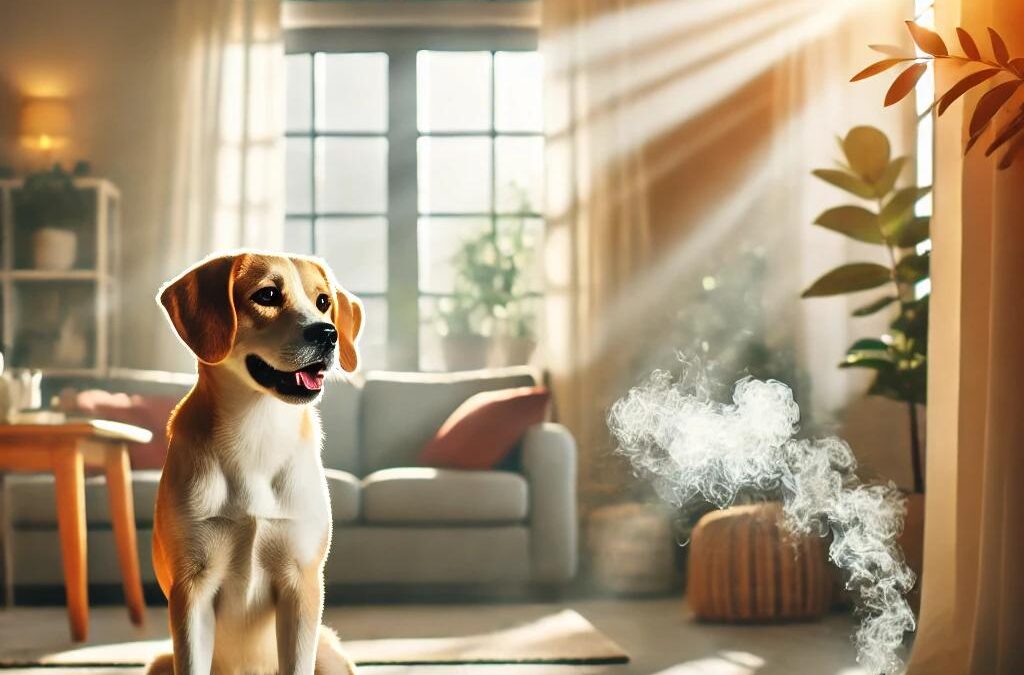Sebbene sia ampiamente noto che il fumo e il fumo passivo siano dannosi per gli esseri umani, molti proprietari di animali domestici non si rendono conto dei rischi significativi che ciò comporta per i loro amici pelosi e piumati. Gli animali domestici esposti al fumo e ai suoi residui sono a un rischio molto più elevato di vari problemi di salute, tra cui problemi respiratori, irritazioni della pelle e degli occhi e persino cancro. Proteggere il tuo animale domestico dai pericoli del fumo passivo è importante tanto quanto salvaguardare la salute umana.
L'impatto del fumo passivo sugli animali domestici
Tutti gli animali domestici, non solo i cani, sono vulnerabili agli effetti nocivi del fumo passivo. Quando gli animali domestici respirano il fumo, o quando i residui di fumo si attaccano alla loro pelliccia, alle loro piume o alle superfici circostanti, sono esposti a migliaia di sostanze chimiche nocive. Questa esposizione avviene ogni volta che si puliscono, leccano la pelle di un fumatore o semplicemente respirano l'aria contaminata nella loro casa.
Residui nocivi permangono nell'ambiente
Uno dei fatti meno noti sul fumo è che anche dopo che il fumo se ne è andato, residui nocivi rimangono su vestiti, tappeti, mobili e peli o piume degli animali domestici. Questo residuo appiccicoso e oleoso contiene oltre 7.000 sostanze chimiche, alcune delle quali possono essere rilasciate nuovamente nell'aria o ingerite dagli animali domestici. Ciò significa che gli animali domestici in una casa in cui si fuma sono esposti a tossine pericolose ogni giorno.
Rischi per la salute di cani e gatti
Gli animali domestici presentano rischi per la salute diversi a seconda della razza e del livello di esposizione.
1. Cani
- I cani esposti al fumo passivo hanno il doppio delle probabilità di sviluppare tumori ai polmoni o al naso rispetto ai cani che vivono in ambienti privi di fumo.
- Le razze dal naso lungo, come i levrieri, i borzoi e i dobermann, corrono un rischio maggiore di sviluppare il cancro al naso perché le particelle di fumo possono rimanere intrappolate nelle loro cavità nasali.
- Le razze con muso corto o medio, come carlini, bulldog, beagle e spaniel bretoni, hanno un rischio maggiore di cancro ai polmoni a causa delle loro vie nasali più corte, che consentono a una maggiore quantità di fumo di raggiungere i polmoni.
2. Gatti
- I gatti esposti ad ambienti in cui si fuma hanno tre volte più probabilità di essere diagnosticati con il cancro, in particolare tumori orali e linfoma. Questo rischio aumentato è dovuto al fatto che i gatti si puliscono frequentemente, ingerendo residui di fumo che si sono depositati sulla loro pelliccia.
Proteggere i tuoi animali domestici dal fumo passivo
Il modo migliore per proteggere i tuoi animali dagli effetti nocivi del fumo passivo è mantenere un ambiente privo di fumo. Se fumi, prendi in considerazione di farlo all'esterno, lontano dai tuoi animali, ed evita di fumare negli spazi in cui trascorrono il loro tempo. Anche la pulizia regolare della tua casa, dei mobili e della cuccia degli animali può aiutare a ridurre al minimo l'esposizione ai residui di fumo nocivi. Adottando queste misure, puoi garantire un ambiente più sano e sicuro per i tuoi amati animali.


